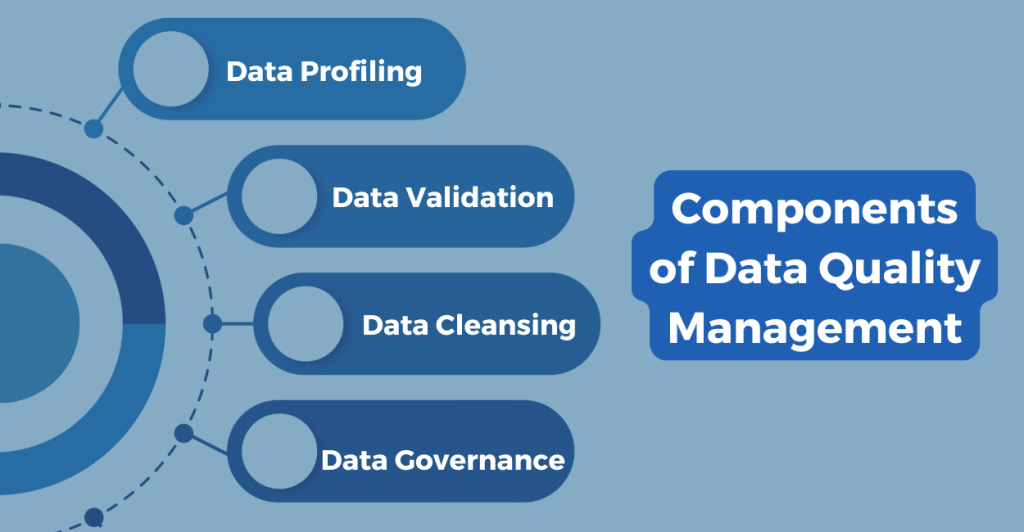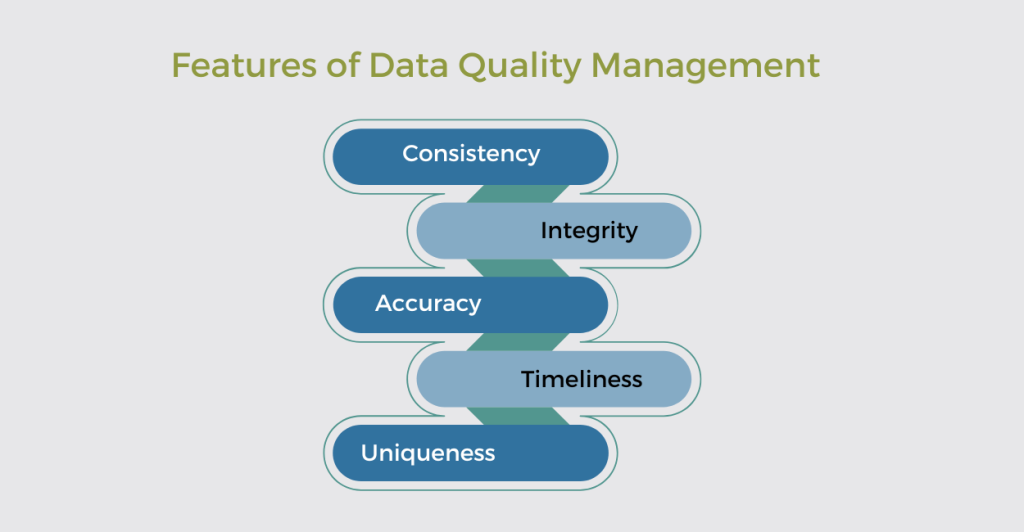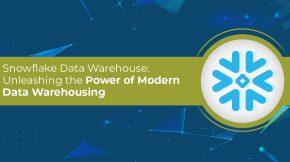Building Trust with Data: A Guide to Quality Management
According to Gartner, poor data quality costs organizations an average of $12.9 million annually. This guide demonstrates how Data Quality Management (DQM) transforms raw data into strategic assets, ensuring 99.9% accuracy while reducing operational costs by up to 40%.
As you know, data is confidential for every organization, especially in software companies. That’s where Data Quality Management comes in. Through DQM, organizations ensure complete and correct information for effective and efficient use of data.
Now you are thinking how do I’ll get this information; just relax. We are here to guide you entirely about Data quality Management. So, let’s dive into it:
Understand what Data Quality Management is?
Data Quality Management (DQM) is the practice of ensuring data is accurate, consistent, complete, and reliable for effective decision-making. High-quality data supports strategic planning, enhances operational efficiency, and reduces the risk of poor decisions based on flawed information. The GIGO (garbage in, garbage out) principle emphasizes that the quality of data directly impacts the value of insights. As large language models reveal biases within datasets, businesses must prioritize ethical and transparent data management to avoid costly mistakes.
By focusing on DQM, your organization can allocate resources efficiently, better meet customer needs, and demonstrate a commitment to accuracy. Ethical data practices are essential in today’s evolving landscape.
Component of Data Quality Management

Components that fulfil the data quality management and can be effective for you as well are as follows:
Data Profiling: Data profiling is an important component in Data Quality Management. It analyzes the data to permit its content, quality and structure. And helps in identifying the errors and inconsistencies within your system.
Data Validation: Validation of data helps in correctness and relevance of acquired data. It is confirmation whether it’s not against the rules and standards.
Data Cleansing: To ensure accuracy and reliability we cleanse data. It corrects your data errors, duplicity in data, and inconsistencies.
Data Governance: Maintaining accountability and compliance across your organization, Governance establishes procedures, standards of data management and policies.
Benefits of Data Quality Management
No doubt Data Quality Management has brightened the life of other businesses and can also provide benefit to you as well. Let’s dive into it:
Increased productivity: By reducing manual error handling, you can automate data quality management, it gives freedom to staff members to focus on their primary tasks and improve operational work.
Good Financial Health: It provides a good data quality process to your organization to minimize expensive mistakes and lessen your financial loss caused by bad data.
Fact-Driven Decisions: Your organization has access to take better decisions while having high quality data. This process can make your team comfortable in taking smart, accurate and frequent decisions.
Optimized operations: Data, which is reliable, can speed up your corporate procedures and also make you able to approach simplified operations.
Competitive advantage: Your company’s reputation can improve with accurate data which also gives it a major competitive advantage by fostering clients’ trust.
Features of Data Quality Management?

The reason to measure the data quality is to check how reliable data is, how accurate results are given. Quality of data is measured by Accuracy, consistency, completeness, Integrity and timeliness. And to ensure your quality purpose we’ll explain to you how to measure data quality. Here are some features of DQM:
- Consistency: Your data must be in one pattern; consistency shows even your data is collected from different sources, but data needs to be the same.
- Integrity: Integrity concentrates on structural accuracy, making sure that your data follows established protocols. The crucial factor is the data transformation error rate, which shows how frequently your data conversion procedures go wrong.
- Accuracy: Accuracy measures the rightness of data compared to global events. It focuses on catching the errors in the system and making them perfect.
- Timeliness: It evaluates how quickly your data becomes available. Timeliness measure data on time value to utilize the access of delicate information.
- Uniqueness: Data quality makes data unique. It keeps focusing on not repeating the data or copied from the other source.
Time to time checking those standards is necessary for continuous improvement in data quality. It opens better decision making and analysis of data.
Data Quality Tool
With the use of AI, active metadata, and graph technologies, modern data quality tools have developed to give you a competitive edge, quickly increase the value of your data, and reduce risks. By employing sophisticated methods like machine learning and natural language processing (NLP) to proactively manage quality on a scale, these innovative augmented solutions completely transform the way data problems are handled.
They enable crucial procedures like data integration and master data management by integrating into larger data management ecosystems as opposed to existing stand-alone technologies. Organizations must match the features of their tools to their unique objectives and use cases.
With the use of AI, active metadata, and graph technologies, modern data quality tools have developed to give you a competitive edge, quickly increase the value of your data, and reduce risks. By employing sophisticated methods like machine learning and natural language processing (NLP) to proactively manage quality on a scale, these innovative augmented solutions completely transform the way data problems are handled.
They enable crucial procedures like data integration and master data management by integrating into larger data management ecosystems as opposed to existing stand-alone technologies. Organizations must match the features of their tools to their unique objectives and use cases.
- Lightup: It is AI- powered anomaly detection for thorough and quick quality assurance.
- Deequ: This tool runs on Spark to scale high metadata validation.
- Monte Carlo: Tool is used to identify real-time problems. It observes the data through AI.
- Datafold: This tool automated data profiling and do accurate tracking of anomalies.
- Bigeye: Continuous pipeline health monitoring with anomaly detection.
Superior data quality is fueled by these next-generation solutions, which guarantee quicker, more accurate insights and wiser decisions throughout your company.
Emerging Data quality Trends
Data quality Management ensures that it is accurate at every stage, it is reliable and provide quality data every time. There are some trends of Data quality management which emerges are below:
- Data Observability: It monitors the data pipelines proactively and detects the anomalies or problems before they start affecting the outcome.
- Process Automation: This process minimizes human errors and proceeds with detection and resolution by automating data quality check.
- Continuous improvement: It regularly refine processes to meet long-term data quality goals.
- AI & Automation: These days, data profiling, anomaly identification, and error resolution are automated by AI and machine learning, which decreases manual labor and improves real-time correction.
- Data Quality Rules: Specific standards for evaluating and preserving data quality are necessary to guarantee accuracy and relevance.
How Beyond Key helps you to control Data Quality
We hope this post has given you useful advice on how to keep high-quality data up to date and how important it is for boosting competitiveness in the modern digital world. Even while maintaining data quality can seem difficult, keep in mind that many businesses have similar problems. Your business can obtain a clear advantage by making a significant investment in data quality management (DQM).
To provide actionable insights that guide better decision-making and advance your company, DQM is crucial. Beyond Key provides customized solutions to assist businesses in streamlining their data management procedures. With the help of our business intelligence services and sophisticated analytics tools, organizations can easily organize, analyze, and preserve data integrity.
Explore Beyond Key’s forefront BI solutions if you want to improve your fueled by data tactics. Let’s use the power to grow your company.














